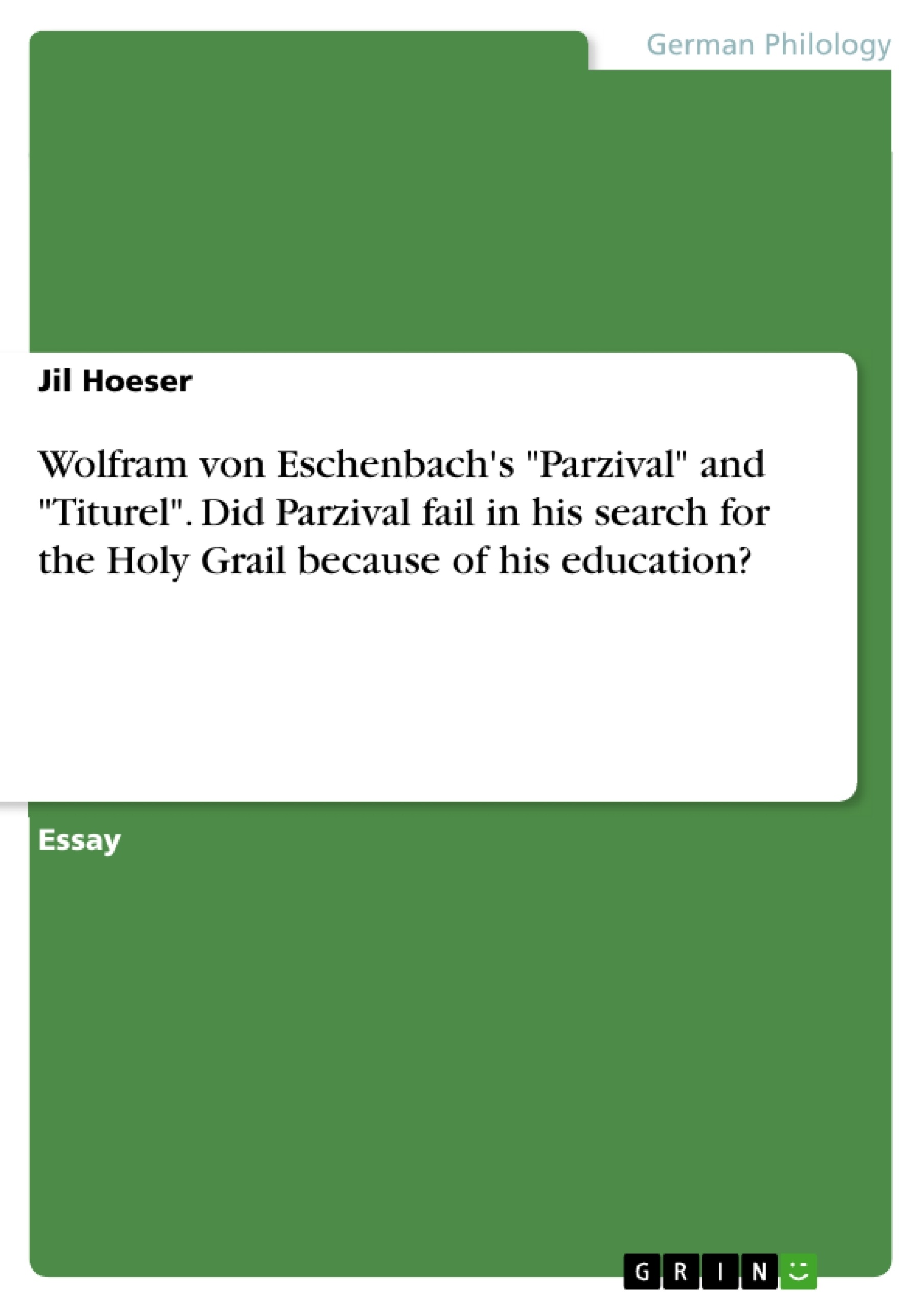‘Parzival’ by Wolfram von Eschenbach is probably the most popular medieval work in the German history of literature. When people try to sum up its plot, they commonly say something like this: the hero of the story is Parzival, an Arthurian knight, who is on his quest for the holy grail after failing the first time he had the chance to. What most people do not know, is that his story is close connected to another Middle High German romance by Wolfram von Eschenbach called ‘Titurel’. But the essential question after reading a plot summary like this is: Why did he fail the first time when searching for the holy grail? What did or did he not do? Why did or did he not do this thing? The answers to these questions will be covered in the following work.
The first step to do so will be by tracing back Parzival’s different forms of education he got, starting by his mother Herzeloyde when he was still a little child to Gurnemanz, lord of the castle in Grâharz, a little afterwards and finally by Trevrizent, a hermit and important character regarding the grail family. I will start by elucidating the different forms of education he got and then analysing them, in order to explain why Parzival acted the way he did. Another important step in my opinion will be a short characterisation of each ‘teacher’ he had, so we can better understand why they educated him in the way they did.
Table of Contents
- Herzeloyd
- Gurnemanz
- Trevrizent
- Parzival's progress
- Conclusion
Objectives and Key Themes
This essay aims to explore the significance of Parzival's education in shaping his character and actions, particularly in relation to his quest for the Holy Grail. By examining the different forms of education he received, the essay seeks to understand why he failed in his initial attempt to find the grail and to shed light on his overall development as a knight.
- The impact of Parzival's upbringing on his understanding of chivalry and religion
- The role of various mentors in shaping Parzival's values and skills
- The interplay between Parzival's naiveté and his inherent potential as a knight
- The complexities of Parzival's character, including his compassion and his struggle with understanding the world around him
Chapter Summaries
The essay begins by analyzing Parzival's childhood and the formative influence of his mother, Herzeloyde. This section explores how Herzeloyde's desire to protect her son from the dangers of chivalry leads to his limited understanding of knighthood and religion. The essay then moves on to examine Parzival's education under Gurnemanz, a wise knight who plays a crucial role in his development. The chapter on Trevrizent focuses on the hermit's teachings and how they contribute to Parzival's growing awareness of his own shortcomings and his quest for spiritual enlightenment. Finally, the essay examines Parzival's progress as a knight, highlighting the lessons he learns from his experiences and the challenges he faces in becoming a true hero.
Keywords
The essay delves into key concepts such as chivalry, religion, education, naiveté, compassion, and the quest for the Holy Grail. The analysis draws upon prominent figures like Parzival, Herzeloyde, Gurnemanz, and Trevrizent, showcasing their individual roles in shaping Parzival's journey. The essay also explores the significance of Wolfram von Eschenbach's work within the context of medieval German literature.
- Arbeit zitieren
- Jil Hoeser (Autor:in), 2016, Wolfram von Eschenbach's "Parzival" and "Titurel". Did Parzival fail in his search for the Holy Grail because of his education?, München, GRIN Verlag, https://www.hausarbeiten.de/document/320348


